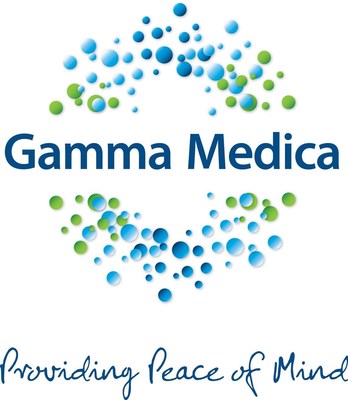SALEM, N.H., Jan. 8, 2016 /PRNewswire/ -- Gamma Medica, Inc., a breast imaging medical device company, today announced the Saudi Food and Drug Authority (SFDA) has issued a Medical Device Marketing Authorization (MDMA) for their LumaGEM® breast imaging product. This MDMA allows Gamma Medica to market the LumaGEM using Molecular Breast Imaging (MBI) technology in the Kingdom of Saudi Arabia (KSA). Integrated Business Ventures Co. Ltd. (IBV) based in Riyadh, Saudi Arabia is Gamma Medica's Authorized Representative and strategic partner for the KSA and the Middle East markets.

According to the National Cancer Registry and leading cancer care centers, there are an estimated 8,000 to 12,000 new cases of breast cancer discovered each year in KSA[i]. It has been reported that up to 60% of these cases are diagnosed at later symptomatic stages, which significantly reduces the five-year survival rate from over 90% at an early detection stage to about 22% in later symptomatic stages. According to the King Faisal Specialist Hospital and Research Center in Riyadh, breast cancer represents 24% of all cancer cases, making it the most common form of cancer in women in KSA. Coupled with the extreme shortages of radiologists, LumaGEM will likely reduce the clinical burden and enable more women to be screened.
"Securing the SFDA approval for the LumaGEM MBI system will benefit all women in the Kingdom of Saudi Arabia and help lessen the burden placed on the Kingdom's over taxed radiologists," said Philip M. Croxford, President and CEO of Gamma Medica. "By offering this new advanced cancer detection modality to physicians and patients, we are excited to provide a highly specific and cost-efficient breast cancer screening for women with complex mammograms and dense breast tissue, resulting in earlier diagnosis and treatment for women in Saudi Arabia."
Dense breast tissue makes it more difficult to detect cancer, as lesions can be masked on standard X-Ray mammogram that uses anatomical imaging as a way of detection.[ii] MBI is a functional imaging modality that highlights metabolic activity in breast tumors not visible on mammography due to tissue density, thereby leading to earlier diagnosis, improved outcomes and lowered costs.iii,iv Recently published studies have shown that the addition of MBI for women with dense breast tissue, results in an estimated 4 times increase in breast cancer detection rates, 50 percent reduction in biopsies[iii] and a subsequent 15% lower cost per cancer detected than screening with mammography alone.[iv] Moreover, the MBI procedure is very well tolerated by patients due to the reduced tissue compression on the breast during the examination.
It is important for women to discuss with their doctors if MBI is an appropriate screening modality for them. The MBI technology is an appropriate choice for all early detection and diagnosis of breast cancer In addition to women with dense breast tissue or suspicious lesions, MBI is also appropriate for high-risk patients with a family history of breast cancer, patients who have tested positive for BRCA1 or BRCA2 genes, symptomatic patients, patients with cosmetic augmentation or patients who cannot undergo an MRI investigation.[v]
About Gamma Medica, Inc.
Gamma Medica, Inc. is a company focused on women's health, overcoming the critical shortcomings of standard anatomical mammography imaging and other screening modalities in the early detection of breast cancer. The company's LumaGEM® MBI system is the first commercially available, FDA-cleared, fully solid-state digital imaging system utilizing dual-head Digital Direct Conversion Gamma Imaging (DDCGI) technology for molecular breast imaging. With over 90 percent sensitivity and specificity, LumaGEM MBI has been shown to significantly improve cancer detection in women with dense breast tissue with fewer false positives relative to anatomical imaging technologies, such as MRI and whole breast ultrasound. For more information visit www.gammamedica.com.
[i] http://appserv.kfshrc.edu.sa/default/health/disease/3?Language=English
[ii] Mayo Clinic. Tests and Procedures Mammogram. http://www.mayoclinic.org/tests-procedures/mammogram/in-depth/dense-breast-tissue/art-20123968?pg=2
[iii] Rhodes DJ, HruskaCB, ConnersAL, et al. JOURNAL CLUB: Molecular Breast Imaging at Reduced RadiaFon Dose for Supplemental Screening in Mammographically Dense Breasts. American Journal of Roentgenology. 2015;204(2):241-251.
[iv] HruskaCB, ConnersAL, Jones KN, et al. DiagnosFc Workup and Costs of a Single Supplemental Molecular Breast Imaging Screen of Mammographically Dense Breasts. American Journal of Roentgenology. 2015;204(6):1345-1353. doi:10.2214/AJR.14.13306.
[v] Gamma Medica. Clinical Indications for MBI. Accessed 9/10/2015. http://www.gammamedica.com/molecular-breast-imaging/clinical-indications-for-an-mbi/
Logo - http://photos.prnewswire.com/prnh/20150814/258614LOGO
To view the original version on PR Newswire, visit:http://www.prnewswire.com/news-releases/saudi-food-and-drug-authority-approves-gamma-medicas-lumagem-molecular-breast-imaging-solution-300201350.html
SOURCE Gamma Medica, Inc.





